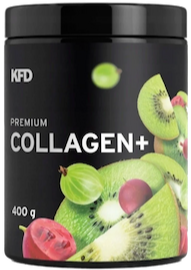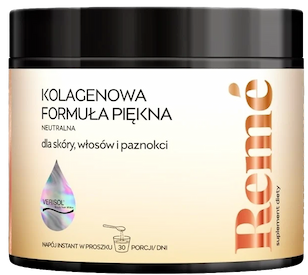Best collagen peptide powder 2025 [benefits & side effects]
Everything you need to know about collagen peptides.


Learn more about our editorial process
.

Learn more about our editorial process
.

Learn more about our editorial process
.

Learn more about our editorial process
.![Best collagen peptide powder 2025 [benefits & side effects]](https://cdn-resources.natu.care/uploads/1/kolagen_w_proszku_w_miseczce_i_lyzce_na_betonowym_tle_4e0667e1be.jpg)
Why you can trust us
Articles on Natu.Care are written based on scientific research, data from government websites and other reliable sources. The texts are written in cooperation with doctors, nutritionists and other health and beauty experts. Articles are reviewed before publication and during significant updates.
.Learn more about our editorial process
.Information about advertisements
Content on Natu.Care may contain links to products from the sale of which we may receive a commission. When creating content, we adhere to high editorial standards and take care to be objective about the products discussed. The presence of affiliate links is not dictated by our partners, and we select the products we review ourselves completely independently.
.Learn more about our terms and Conditions
.They help with joint pain, wrinkles, strengthen hair and nails. In recent years they have become a hit in cosmetics and dietary supplements. And that's a good thing, because their use has a scientific basis.
With master pharmacist and educator, Ilona Krzak, we talk about the structure of collagen peptides, the differences with other forms of collagen, and how you can use peptides in your daily rituals.
From this article you will learn:
- What collagen peptides and hydrolysis are all about. .
- Why collagen peptides are a good choice for health and beauty support.
- Why collagen peptides are a good choice for health and beauty support.
- What collagen supplements experts recommend. .

Zobacz, co może zrobić dla Twojego zdrowia i urody Natu.Care Kolagen Premium 5000 mg -15% z kodem BLOG15
Natu.Care Kolagen Premium 5000 mg, kakao
Natu.Care Kolagen Premium dla zdrowia stawów, skóry, paznokci i włosów. Najlepsza przyswajalność. Optymalna dawka 5 000 lub 10 000 mg. Przebadany przez niezależne laboratorium.
Zobacz więcej
Efekty zaczęłam dostrzegać po około 5 tygodniach. Włosy są nawilżone, przestały też wypadać. Moja wrażliwa cera przestała się przesuszać. Plus za pyszny smak!@Milena Dlugosz
See also:
.
- Most Powerful Collagen - Ranking .
- Best absorbed collagen
- Collagen for the skin
- Facial collagen
- Collagen for wrinkles
- Collagen for acne
- Collagen for cellulite
- Collagen for stretch marks
- Hair collagen
- Collagen for joints
- Collagen for bones
- Collagen for tendons
What are collagen peptides?
.
Collagen peptides are short chains of collagen protein formed by enzymatic hydrolysis, which breaks down collagen into smaller moleculesand. Collagen peptides are lighter and smaller, so they are absorbed more easily and quickly than other forms of collagen.
Collagen peptides with a mass of 3.5-4.5 kDa and a helical structure are the best absorbed..
 .
.
Ilona Krzak Master of Pharmacy
.
The whole process can be likened to 'pre-digestion'. Producers prepare the raw material, clean it, pre-treat it and then give it a bath of water and enzymes. This ensures that you get the health itself - digestible collagen, which you introduce into your body more efficiently.
Collagen peptides vs collagen
.
Collagen is an animal protein and the basic building block of living organisms. Collagen peptides are a processed form of collagen that is easier to digest and absorb. It is also potentially less allergenic than the crude form of collagen.
Collagen peptides are obtained from a number of sources. Beef, poultry and fish peptides are popular on the market. Fish collagen, also known as marine collagen, is considered to be the best absorbed because it most closely resembles the collagen your body produces in terms of structure.
Even 3% of the population worldwide is allergic to bovine collagen..
 .
.
Ilona Krzak Master of Pharmacy
.
Other raw materials of marine origin are increasingly being used to produce collagen supplements. One of the more popular ones is the sea cucumber (also known as 'sea cucumber'), a species of invertebrate that lives at the bottom of the seas and oceans.
Cucumbers contain type 1 collagen and other health-promoting compounds such as saponins, chondroitin sulphates, mucopolysaccharides, bioactive peptides, amino acids and vitamins and minerals. In addition to this, they offset the problem of religious prohibitions where collagen derived from mammals is not allowed..
 .
.
Ilona Krzak Master of Pharmacy
.
What is the difference between collagen peptides and hydrolysed collagen?
.
Collagen peptides and hydrolysed collagen are two terms that are often used interchangeably. However, this is not entirely correct. Although both molecules are derived from collagen, they differ in molecular weight and amino acid composition.
The molecular weight of collagen peptides can range from 0.3 to 8 kDa (kilodaltons). Peptides with a low molecular weight tend to have better bioactivity compared to peptides with a higher molecular weight. For comparison, the molecular weight of natural (native) collagen is approximately 300 kDa..
 .
.
Ilona Krzak Master of Pharmacy
In practice, collagen peptides are smaller fragments of hydrolysed collagen. This makes them even better absorbed than collagen hydrolysate.
In practice, the difference is minimal and both forms are more commonly used in supplements than natural collagen.
.
Research has shown that supplementation of hydrolysed type 1 collagen and type 2 supports the biosynthesis of hyaluronic acid in the body.
See also:
.
Best collagen peptide supplements - ranking
.
Collagen is, after all, the protein of youth, so check out supplements with collagen peptides to help take care of your healthy hair, skin, nails and joints.
These are some preparations you may want to consider if you need to supplement collagen deficiencies.
.
Natu.Care Collagen Premium 5000 mg, mango-maracuja

- Collagen content: 5000 mg marine collagen hydrolysate
- .
- Additional active ingredients: vitamin C, low molecular weight hyaluronic acid (and L-theanine and coenzyme Q10 in cocoa flavoured collagen or vitamin A and vitamin E in mango–passion fruit flavoured collagen)
- .
- Form: powder sachets
- .
- Dose: 1 sachet per day
- .
- Sufficient for: 30 days
- .
Product description
Fish collagen from the Natu.Care brand in a dose of 5000 mg. The formula contains a sufficient portion of the active substance to positively affect your joints, musculoskeletal system and immunity.
Take care of your tendons, joint cartilage, ligaments, muscles and even bones by supplying them with the building blocks to function properly. Move without bólu and provide the necessary support for any physical activity.
And as a „gratis” to regular supplementation, you will also receive firm skinóhand, healthy and shiny hair and strong nails.
Natu.Care Premium Collagen is available in two flavours – Cacao Bloom and Rise&Shine. Both formulas are based on the following active ingredients: marine collagen hydrolysate, wild roseóbud extract and hyaluronic acid.
Additionally, Cacao Bloom contains natural L-theanine, coenzyme Q10 and defatted Dutch cacao. Rise&Shine instead contains vitamin E and vitamin A.
These are the best collagens in the world.
These best fish collagens on the market also rós taste – Cacao Bloom is a treat for chocolate lovers. Rise&Shine will appeal to those whoóenjoy the refreshing taste of mangoófruit and passion fruit.
Pros and cons
Fish collagen from the Natu.Care brand in a dose of 5000 mg. The formula contains a sufficient portion of the active substance to positively affect your joints, musculoskeletal system and immunity.
Take care of your tendons, joint cartilage, ligaments, muscles and even bones by supplying them with the building blocks to function properly. Move without bólu and provide the necessary support for any physical activity.
And as a „gratis” to regular supplementation, you will also receive firm skinóhand, healthy and shiny hair and strong nails.
Natu.Care Premium Collagen is available in two flavours – Cacao Bloom and Rise&Shine. Both formulas are based on the following active ingredients: marine collagen hydrolysate, wild roseóbud extract and hyaluronic acid.
Additionally, Cacao Bloom contains natural L-theanine, coenzyme Q10 and defatted Dutch cacao. Rise&Shine instead contains vitamin E and vitamin A.
These are the best collagens in the world.
These best fish collagens on the market also rós taste – Cacao Bloom is a treat for chocolate lovers. Rise&Shine will appeal to those whoóenjoy the refreshing taste of mangoófruit and passion fruit.
Additional information
Fish collagen from the Natu.Care brand in a dose of 5000 mg. The formula contains a sufficient portion of the active substance to positively affect your joints, musculoskeletal system and immunity.
Take care of your tendons, joint cartilage, ligaments, muscles and even bones by supplying them with the building blocks to function properly. Move without bólu and provide the necessary support for any physical activity.
And as a „gratis” to regular supplementation, you will also receive firm skinóhand, healthy and shiny hair and strong nails.
Natu.Care Premium Collagen is available in two flavours – Cacao Bloom and Rise&Shine. Both formulas are based on the following active ingredients: marine collagen hydrolysate, wild roseóbud extract and hyaluronic acid.
Additionally, Cacao Bloom contains natural L-theanine, coenzyme Q10 and defatted Dutch cacao. Rise&Shine instead contains vitamin E and vitamin A.
These are the best collagens in the world.
These best fish collagens on the market also rós taste – Cacao Bloom is a treat for chocolate lovers. Rise&Shine will appeal to those whoóenjoy the refreshing taste of mangoófruit and passion fruit.
User review
Fish collagen from the Natu.Care brand in a dose of 5000 mg. The formula contains a sufficient portion of the active substance to positively affect your joints, musculoskeletal system and immunity.
Take care of your tendons, joint cartilage, ligaments, muscles and even bones by supplying them with the building blocks to function properly. Move without bólu and provide the necessary support for any physical activity.
And as a „gratis” to regular supplementation, you will also receive firm skinóhand, healthy and shiny hair and strong nails.
Natu.Care Premium Collagen is available in two flavours – Cacao Bloom and Rise&Shine. Both formulas are based on the following active ingredients: marine collagen hydrolysate, wild roseóbud extract and hyaluronic acid.
Additionally, Cacao Bloom contains natural L-theanine, coenzyme Q10 and defatted Dutch cacao. Rise&Shine instead contains vitamin E and vitamin A.
These are the best collagens in the world.
These best fish collagens on the market also rós taste – Cacao Bloom is a treat for chocolate lovers. Rise&Shine will appeal to those whoóenjoy the refreshing taste of mangoófruit and passion fruit.
Natu.Care Collagen Premium 10000 mg, cherry

- Collagen content: 10,000 mg of hydrolyzed bovine collagen
- Additional active ingredients: vitamin C, low molecular weight hyaluronic acid, glucosamine, chondroitin, extract of Indian frankincense resin (boswellia serrata)
- Form: powder sachets for drinking
- Serving: 1 sachet per day
- Lasts for: 30 days
Product description
One of the strongest collagens on the market, providing as much as 10,000 mg per daily serving. This product can effectively support the condition of joints, skin, hair, and nails.
With this supplement, you will support your skeletal and joint system as well as your beauty, helping you visually halt the aging process and feel rejuvenated!
Pros and cons
Pros:
- The daily portion of collagen is very large – as much as 10,000 mg.
- Proven collagen formula – COLLinstant, whose effectiveness has been confirmed in clinical studies.
- Effective dose of hyaluronic acid, which additionally moisturizes the skin and positively affects joint health.
- Vitamin C supports the body's natural collagen production.
- Glucosamine is a fundamental building block of compounds found in joint cartilage and a component of collagen that gives elasticity to connective tissue in tendons.
- Chondroitin is a natural component found in the human body, mainly in cartilage. This large molecule (mucopolysaccharide) has the ability to absorb water, which helps maintain the elasticity and resilience of cartilage.
- Frankincense resin extract supports blood circulation and joint mobility and reduces their stiffness. It may help alleviate inflammatory conditions.
- The composition has been tested by the independent and accredited J.S. Hamilton laboratory.
Cons:
- None.
Additional information
Users praise Natu.Care Collagen Premium for the easy dissolving of the powder.
ALLDEYNN Collarose Fish
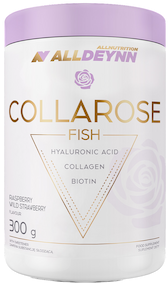
- Collagen content: 5000 mg hydrolysate fish collagen VERISOL F® .
- Additional active ingredients: vitamin C, hyaluronic acid, biotin
- Form: powder to dissolve in water .
- Dose: one scoop (6 g) of powder daily .
- Sufficient for: 50 days .
Product description
Atlantic cod collagen VERISOL F® contained in the formula are easily absorbed collagen peptides of fish origin. Regular supplementation can firm your skinóhand and slow down the ageing process. Your nails will become stronger and stop breaking. The addition of biotin will improve the condition of your hairów. The collagen portion is high enough to also have a good effect on your joints, muscles and bones.
Pros and cons
Atlantic cod collagen VERISOL F® contained in the formula are easily absorbed collagen peptides of fish origin. Regular supplementation can firm your skinóhand and slow down the ageing process. Your nails will become stronger and stop breaking. The addition of biotin will improve the condition of your hairów. The collagen portion is high enough to also have a good effect on your joints, muscles and bones.
Additional information
Atlantic cod collagen VERISOL F® contained in the formula are easily absorbed collagen peptides of fish origin. Regular supplementation can firm your skinóhand and slow down the ageing process. Your nails will become stronger and stop breaking. The addition of biotin will improve the condition of your hairów. The collagen portion is high enough to also have a good effect on your joints, muscles and bones.
Expert and user opinion
Atlantic cod collagen VERISOL F® contained in the formula are easily absorbed collagen peptides of fish origin. Regular supplementation can firm your skinóhand and slow down the ageing process. Your nails will become stronger and stop breaking. The addition of biotin will improve the condition of your hairów. The collagen portion is high enough to also have a good effect on your joints, muscles and bones.
DuoLife Collagen fish collagen 2500 mg
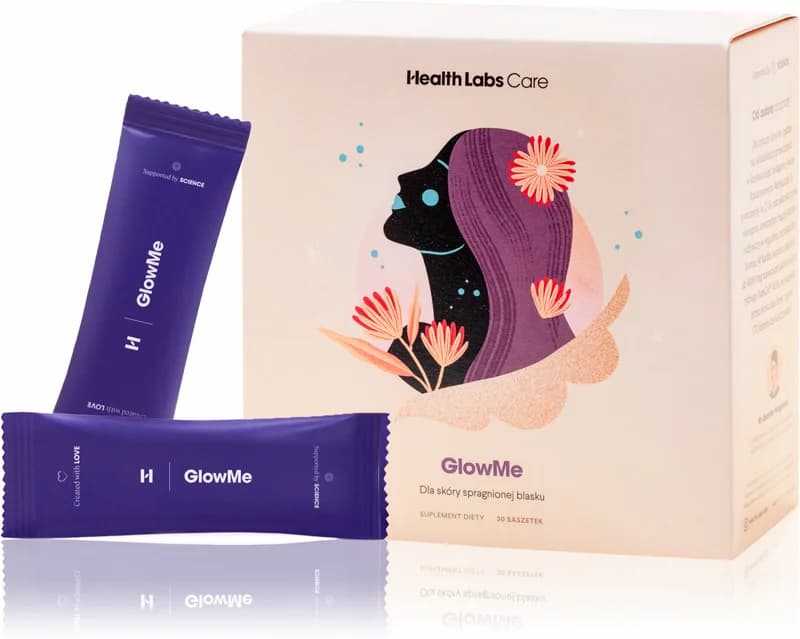
- Collagen content: 2500 mg collagen
- Additional active ingredients: vitamin C, silicon, glucosamine, hyaluronic acid, nettle and bamboo extracts
- Form: liquid to drink .
- Dose:25 ml .
- Sufficient for: 30 days .
Product description
100% natural collagen liquid without unnecessary ingredientsós. The composition of ingredientsós improves the appearance and condition of skinóry, hairów, nails. DuoLife is a good choiceór if you notice the first signs of skinóry ageing or want to stop this process. A tasty liquid, convenient to use.
Pros and cons
100% natural collagen liquid without unnecessary ingredientsós. The composition of ingredientsós improves the appearance and condition of skinóry, hairów, nails. DuoLife is a good choiceór if you notice the first signs of skinóry ageing or want to stop this process. A tasty liquid, convenient to use.
Additional information
100% natural collagen liquid without unnecessary ingredientsós. The composition of ingredientsós improves the appearance and condition of skinóry, hairów, nails. DuoLife is a good choiceór if you notice the first signs of skinóry ageing or want to stop this process. A tasty liquid, convenient to use.
User review
100% natural collagen liquid without unnecessary ingredientsós. The composition of ingredientsós improves the appearance and condition of skinóry, hairów, nails. DuoLife is a good choiceór if you notice the first signs of skinóry ageing or want to stop this process. A tasty liquid, convenient to use.
Pharmovit liquid collagen 10000 mg
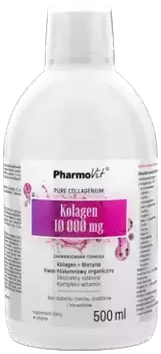
- Collagen content: 10000 mg hydrolysed bovine collagen types I and III .
- Additional active ingredients: hyaluronic acid, natural plant extracts, vitamin C, B vitamins, zinc, vitamin D
- Form: vials .
- Dose: 25 ml .
- Sufficient for: 20 days .
Product description
A solid daily dose of collagen for jointómuscle and bone health and beauty. The duo of collagen and vitamin C has a positive effect on each other, so that „the protein of youth” is better absorbed and more efficiently produced in the body.
Pros and cons
A solid daily dose of collagen for jointómuscle and bone health and beauty. The duo of collagen and vitamin C has a positive effect on each other, so that „the protein of youth” is better absorbed and more efficiently produced in the body.
Additional information
A solid daily dose of collagen for jointómuscle and bone health and beauty. The duo of collagen and vitamin C has a positive effect on each other, so that „the protein of youth” is better absorbed and more efficiently produced in the body.
KFD Premium Collagen+
Product description
High dose of collagen and a real bomb of vitamins C and D and organic sulphur. With this preparation the effects will come immediately. You will improve the firmness of your skin and reduce wrinkles. Your hair and nails will be strong and shiny.
A generous dose of collagen will improve the mobility of your jointsós, benefit your bone system and muscles. Do you do sports and need a product thatós able to keep up with your needs? This product will do the trick.
Pros and cons
High dose of collagen and a real bomb of vitamins C and D and organic sulphur. With this preparation the effects will come immediately. You will improve the firmness of your skin and reduce wrinkles. Your hair and nails will be strong and shiny.
A generous dose of collagen will improve the mobility of your jointsós, benefit your bone system and muscles. Do you do sports and need a product thatós able to keep up with your needs? This product will do the trick.
Additional information
High dose of collagen and a real bomb of vitamins C and D and organic sulphur. With this preparation the effects will come immediately. You will improve the firmness of your skin and reduce wrinkles. Your hair and nails will be strong and shiny.
A generous dose of collagen will improve the mobility of your jointsós, benefit your bone system and muscles. Do you do sports and need a product thatós able to keep up with your needs? This product will do the trick.
Expert opinion
High dose of collagen and a real bomb of vitamins C and D and organic sulphur. With this preparation the effects will come immediately. You will improve the firmness of your skin and reduce wrinkles. Your hair and nails will be strong and shiny.
A generous dose of collagen will improve the mobility of your jointsós, benefit your bone system and muscles. Do you do sports and need a product thatós able to keep up with your needs? This product will do the trick.
Product description
The dietary supplement from Remé contains beef collagen in a patented formula and vitamin C, whichóra aids its absorption. The formula comes in three flavours: neutral, orange-maracuja and strawberry-pomegranate. The formula can effectively support and improve the condition of the skinóry, hairóry and nails.
Pros and cons
The dietary supplement from Remé contains beef collagen in a patented formula and vitamin C, whichóra aids its absorption. The formula comes in three flavours: neutral, orange-maracuja and strawberry-pomegranate. The formula can effectively support and improve the condition of the skinóry, hairóry and nails.
Additional information
The dietary supplement from Remé contains beef collagen in a patented formula and vitamin C, whichóra aids its absorption. The formula comes in three flavours: neutral, orange-maracuja and strawberry-pomegranate. The formula can effectively support and improve the condition of the skinóry, hairóry and nails.
The dietary supplement from Remé contains beef collagen in a patented formula and vitamin C, whichóra aids its absorption. The formula comes in three flavours: neutral, orange-maracuja and strawberry-pomegranate. The formula can effectively support and improve the condition of the skinóry, hairóry and nails.
{ product:3WlNRjrJiGlRS7M2lutPR8 }}
{ product:3toZVdGtbWWEszm5MCkjxH }}
When choosing a collagen supplement, pay attention to the form, origin, form and dose of the collagen.
What do collagen peptides help with?
.
Bioactive collagen peptides can help you in various aspects of health and beauty. On the one hand, they can replenish collagen in the body on an ad hoc basis, while on the other they can help stimulate the body to produce its own collagen. The most important benefits include skin and joint health, but they don't stop there.
Collagen peptides for the face (and beyond)
.
Collagen peptides positively impact the condition and health of your skinand. The most important effects you will get from them are:
- .
- improving skin texture, firmness, hydration and elasticity, .
- reduction in the appearance of wrinkles, .
- potential reduction in cellulite, .
- reduction of sun damage (photo-aging), .
Collagen peptides are safe for the skin. However, the problem with topical application is their ability to penetrate the skin. The larger the peptide (6-7 amino acids or more), the more difficult it is for them to penetrate the deeper layers.
 .
.
Ilona Krzak Master of Pharmacy
.
See also:
.
- Facial collagen
- Collagen for acne
- Collagen for wrinkles
- Collagen for stretch marks
- Collagen for cellulite
Collagen peptides for joints
.
Supplementation with peptides - especially type 2 collagen - also supports joint health. It keeps them strong, robust and limber, and helps joint cartilage to regenerate better (and faster). Together with hyaluronic acid it improves their lubrication.
Supplements with collagen peptides help treat osteoarthritisand.
.
Collagen peptides may reduce joint pain as supplementation inhibits glycine-mediated cytokine release.
 .
.
Ilona Krzak Master of Pharmacy
.
See also:
.
Other uses
.
In addition to skin and joint benefits, collagen peptidesand:
- have an anti-inflammatory effect, .
- encourage growth and improve the condition of hair and nails, .
- reduce oxidative stress, .
- increase muscle mass and strength, .
- promote wound healing, .
- increase bone density, .
- prevent diet-induced obesity and related disorders, .
Chronic liver disease leads to fibrosis, the deposition of type 1 collagen. It has been found that vitamin D3 inhibits collagen formation in stellate cells, which slows fibrosis. People with vitamin D3 deficiency and liver disease are at higher risk of fibrosis and cirrhosis..
 .
.
Ilona Krzak Master of Pharmacy
.
See also:
.
.
In what form is it best to take collagen peptides?
.
Collagen peptides are a popular dietary supplement that you can take as you like. They are available on the market:
- collagen peptides for drinking, .
- collagen peptides in liquid, .
- collagen peptides in powder,
- collagen peptides in tablets,
- collagen peptides in capsules, .
You don't have to be limited to the traditional dissolving the contents of a sachet in water or taking a sip of tablets. You can add it to oatmeal, a pre-workout shake or to your favourite muffins.
Out of the box.
In addition to supplementation, you can also opt for injectable collagen peptides. Collagen injections can produce results faster than oral supplementation. Collagen injections are typically used to fill wrinkles, improve the appearance of skin and regenerate joints. Collagen therapy can be effective in treating back pain or improving knee mobilityand.
See also:
.
- Best Collagen - Ranking .
- Drinking collagen - effects .
- Doppelherz collagen
- Colway collagen
- Natural collagen
- Lysine
Do collagen peptides really work?
.
The effects of collagen supplements and their health-promoting properties are well documented scientifically. If you want to squeeze the most out of your supplements, take them with vitamin C, and start a lifestyle that will support natural collagen production - diet, regular exercise and adequate hydration.
See also:
How long will it take before I see results?
It is impossible to say unequivocally when the specific effects of collagen supplementation will appear. However, scientists have observed the following patterns:
- after 1-2 weeks: less pain after intense physical activity; .
- after one month: improved skin elasticity; .
- after 2 months: thicker hair and more hydrated skin; .
- after 3 months: improved joint mobility, more flexible ligaments and tendons; .
- after 6 months: reduced appearance of wrinkles, harder and stronger nails; .
- after 12 months: increased bone density; .
The effects of collagen supplements will vary depending on the dose, regularity of use, gender, age, diet and lifestyle. Check with your clinical nutritionist or doctor for all the details before you start supplementation.

Zobacz, co może zrobić dla Twojego zdrowia i urody Natu.Care Kolagen Premium 5000 mg -15% z kodem BLOG15
Natu.Care Kolagen Premium 5000 mg, kakao
Natu.Care Kolagen Premium dla zdrowia stawów, skóry, paznokci i włosów. Najlepsza przyswajalność. Optymalna dawka 5 000 lub 10 000 mg. Przebadany przez niezależne laboratorium.
Zobacz więcej
Efekty zaczęłam dostrzegać po około 5 tygodniach. Włosy są nawilżone, przestały też wypadać. Moja wrażliwa cera przestała się przesuszać. Plus za pyszny smak!@Milena Dlugosz
See also:
.
- Which collagen to choose? .
- When to drink collagen - morning or evening? .
- What destroys collagen in the body? .
- Where is collagen found? .
Summary
.
- Collagen peptides are small molecules of collagen that are formed by hydrolysis.
- Collagen peptides are not collagen peptides.
- They are not the same as hydrolysed collagen, although the terms are often used interchangeably - they differ in composition and molecular weight.
- Collagen peptides are not the same as hydrolysed collagen.
- Collagen peptides are the best absorbed form of collagen. .
- Collagen peptides have a positive effect on skin and joint health, promote wound healing, have an anti-inflammatory effect, and strengthen hair and nails.
- Collagen peptides can be supplemented orally or taken by injection. .
FAQ
.Is it worth taking collagen?
.Of course! Collagen production declines steadily after the age of 25 and there is not enough collagen to meet your needs.
Collagen supplementation is recommended for anyone who is noticing problems with their joints, hair, nails and skin. Supplements will allow you to replenish collagen deficiencies, and research confirms that, among other things, it improves skin elasticity and hydration, reduces joint pain, and aids tissue regeneration.
Naturally support the body's collagen synthesis, but pharmacist Ilona Krzak advises that supplementation should be discontinued during infectious infections (e.g. flu) - you will avoid the risk of excessive collagen deposition in the body.
See also, what destroys collagen in the body and how to remedy it.
.Are collagen peptides healthy?
.Powdered collagen peptides are highly researched and their properties are confirmed by scientific studies. They are used in cosmetology, aesthetic medicine and are an important ingredient in dietary supplements. Among other things, peptides improve the health of skin, nails, hair and joints, and promote wound healing.
See also: Collagen supplements - Ranking
.Which collagen is absorbed best?
.The best absorbed forms of collagen are peptides and collagen hydrolysate. In both cases, collagen is broken down into smaller fragments, making it easier for the body to absorb them.
In simple terms, collagen peptides are smaller fragments of hydrolysed collagen, which makes them even easier to absorb. This is why collagen supplements based on peptides, often considered more effective.
Consider the source of collagen, i.e. whether it comes from fish, cattle or other animals. Fish collagen (marine) most closely resembles human collagen in terms of structure, and is therefore considered easier for the body to absorb than collagen from other sources.
See also: What collagen to choose?
.What's better - collagen peptides or ceramides?
.Both collagen peptides and ceramides have a positive effect on the health and appearance of the skin, although each in their own way, and the choice between them depends on your needs and the results you want.
From a purely health perspective, collagen peptides have a greater impact on skin health than ceramides. Ceramides are naturally occurring lipids (fats)and in the skin. They improve the skin barrier and hydrationand.
.If you want to improve the overall health of skin, hair, nails and joints, collagen peptides may be a better choice. If you want to strengthen the skin barrier and hydration, ceramides may be more appropriate.
See also: Best moisturiser - Ranking
.Is creatine a peptide?
.No, creatine is not a peptide. Creatine is a so-called non-protein amino acid that is naturally produced in the bodyand. It is formed from glycine, arginine and methionineand. Creatine is not a peptide because it does not contain amino acid residues linked by peptide bonds. Referring (even colloquially) to creatine as a peptide is incorrect.
See also: Creatine - effects, dosage, opinions
.Do collagen peptides work like botox?
No. Collagen peptides and Botox have different mechanisms of action. Collagen peptides are used as a bioactive ingredient in dietary supplements and nutricosmetics. They have been shown to improve skin barrier function, stimulate collagen synthesis and hyaluronic acid and promote skin hydrationand.
On the other hand, Botox is a neurotoxin that blocks the release of acetylcholine, a neurotransmitter that stimulates muscle contraction, leading to muscle relaxation and wrinkle reduction .
.Collagen peptides can improve the health and appearance of skin, they do not have a muscle relaxing effect like Botox. You may sometimes come across the term that peptides are non-invasive Botox, but this is just a marketing ploy.
See also: What collagen to choose for wrinkles?
.What not to combine collagen peptides with?
.Today there is no evidence that collagen peptides should not be combined with a particular food or supplement. However, if you want to boost its properties (e.g. improving skin hydration and elasticityand, promoting wound healingand) by improving absorption, take it with good sources of vitamin C, including peppers, parsley or citrus.
In facial care and cosmetics it is better not to combine peptides with vitamin C, as well as with AHA and BHA acids, as they lose their properties in acidic pH. Apply Serum or face cream with peptides at night, and reach for serum with vitamin C (or other products) in the morning.
See also: What wrinkle cream to choose?
..
Resources
.See all
.Akbarian, M., Khani, A., Eghbalpour, S., & Uversky, V. N. (2022). Bioactive Peptides: Synthesis, Sources, Applications, and Proposed Mechanisms of Action. International Journal of Molecular Sciences, 23(3), 1445. https://doi.org/10.3390/ijms23031445
Antonio, J., Candow, D. G., Forbes, S. C., Gualano, B., Jagim, A. R., Kreider, R. B., Rawson, E. S., Smith-Ryan, A. E., VanDusseldorp, T. A., Willoughby, D. S., & Ziegenfuss, T. N. (2021). Common questions and misconceptions about creatine supplementation: What does the scientific evidence really show? Journal of the International Society of Sports Nutrition, 18(1), 13. https://doi.org/10.1186/s12970-021-00412-w
Asserin, J., Lati, E., Shioya, T., & Prawitt, J. (2015). The effect of oral collagen peptide supplementation on skin moisture and the dermal collagen network: Evidence from an ex vivo model and randomized, placebo-controlled clinical trials. Journal of Cosmetic Dermatology, 14(4), 291-301. https://doi.org/10.1111/jocd.12174
Astre, G., Deleruyelle, S., Dortignac, A., Bonnet, C., Valet, P., & Dray, C. (2018). Diet-induced obesity and associated disorders are prevented by natural bioactive type 1 fish collagen peptides (Naticol®) treatment. Journal of Physiology and Biochemistry, 74(4), 647-654. https://doi.org/10.1007/s13105-018-0650-0
Borawska, J., Pliszka, M., Świtaj, M., & Darewicz, M. (2015). Rainbow trout proteins as potential source of biologically active peptides. General Medicine and Health Sciences, 21(3), 322-327. https://doi.org/10.5604/20834543.1165361
Chattopadhyay, S., & Raines, R. T. (2014). Collagen-based biomaterials for wound healing. Biopolymers, 101(8), 821-833. https://doi.org/10.1002/bip.22486
Chen, M., Li, Y., & Huang, G. (2020). Potential Health Functions of Collagen Bioactive Peptides: A Review. American Journal of Biochemistry and Biotechnology, 16(4), 507-519. https://doi.org/10.3844/ajbbsp.2020.507.519
de Miranda, R. B., Weimer, P., & Rossi, R. C.. (2021). Effects of hydrolyzed collagen supplementation on skin aging: A systematic review and meta-analysis. International Journal of Dermatology, 60(12), 1449-1461. https://doi.org/10.1111/ijd.15518
Elango, J., Robinson, J., Zhang, J., Bao, B., Ma, N., de Val, J. E. M. S., & Wu, W. (2019). Collagen Peptide Upregulates Osteoblastogenesis from Bone Marrow Mesenchymal Stem Cells through MAPK- Runx2. Cells, 8(5), Article 5. https://doi.org/10.3390/cells8050446
Evans, M., Lewis, E. D., Zakaria, N., Pelipyagina, T., & Guthrie, N. (2020). A randomized, triple-blind, placebo-controlled, parallel study to evaluate the efficacy of a freshwater marine collagen on skin wrinkles and elasticity. Journal of Cosmetic Dermatology, 20(3). https://doi.org/10.1111/jocd.13676
Felician, F. F., Yu, R.-H., Li, M.-Z., Li, C.-J., Chen, H.-Q., Jiang, Y., Tang, T., Qi, W.-Y., & Xu, H.-M. (2019). The wound healing potential of collagen peptides derived from the jellyfish Rhopilema esculentum. Chinese Journal of Traumatology, 22(1), 12-20. https://doi.org/10.1016/j.cjtee.2018.10.004
Fu, Y., Therkildsen, M., Aluko, R. E., & Lametsch, R. (2019). Exploration of collagen recovered from animal by-products as a precursor of bioactive peptides: Successes and challenges. Critical Reviews in Food Science and Nutrition, 59(13), 2011-2027. https://doi.org/10.1080/10408398.2018.1436038
Kim, D. U., Chung, H. C., Choi, J., Sakai, Y., & Lee, B. Y. (2018). Oral Intake of Low-Molecular-Weight Collagen Peptide Improves Hydration, Elasticity, and Wrinkling in Human Skin: A Randomized, Double-Blind, Placebo-Controlled Study. Nutrients, 10(7). https://doi.org/10.3390/nu10070826
Kordala, N., Bednarska, M., & Adamczak, M. (2021). Health-promoting properties of bioactive peptides (BAP) in dairy products-Biotechnological and medical aspects. General Medicine and Health Sciences, 27(2), 107-116. https://doi.org/10.26444/monz/135545
Kumar, S., Sugihara, F., Suzuki, K., Inoue, N., & Venkateswarathirukumara, S. (2015). A double-blind, placebo-controlled, randomised, clinical study on the effectiveness of collagen peptide on osteoarthritis. Journal of the Science of Food and Agriculture, 95(4), 702-707. https://doi.org/10.1002/jsfa.6752
Kviatkovsky, S. A., Hickner, R. C., & Ormsbee, M. J. (2022). Collagen peptide supplementation for pain and function: is it effective? Current Opinion in Clinical Nutrition and Metabolic Care, 25(6), 401-406. https://doi.org/10.1097/MCO.0000000000000870
Nurilmala, M., Hizbullah, H. H., Karnia, E., Kusumaningtyas, E., & Ochiai, Y. (2020). Characterization and Antioxidant Activity of Collagen, Gelatin, and the Derived Peptides from Yellowfin Tuna (Thunnus albacares) Skin. Marine Drugs, 18(2), Article 2. https://doi.org/10.3390/md18020098
Oertzen-Hagemann, V., Kirmse, M., Eggers, B., Pfeiffer, K., Marcus, K., de Marées, M., & Platen, P. (2019). Effects of 12 Weeks of Hypertrophy Resistance Exercise Training Combined with Collagen Peptide Supplementation on the Skeletal Muscle Proteome in Recreationally Active Men. Nutrients, 11(5), 1072. https://doi.org/10.3390/nu11051072
Paul, C., Leser, S., & Oesser, S. (2019). Significant Amounts of Functional Collagen Peptides Can Be Incorporated in the Diet While Maintaining Indispensable Amino Acid Balance. Nutrients, 11(5), 1079. https://doi.org/10.3390/nu11051079
Persky, A. M., Brazeau, G. A., & Hochhaus, G. (2003). Pharmacokinetics of the Dietary Supplement Creatine. Clinical Pharmacokinetics, 42(6), 557-574. https://doi.org/10.2165/00003088-200342060-00005
.Potter, J. J., Liu, X., Koteish, A., & Mezey, E. (2013). 1,25-dihydroxyvitamin D3 and its nuclear receptor repress human α1 (I) collagen expression and type I collagen formation. Liver International: Official Journal of the International Association for the Study of the Liver, 33(5), 677-686. https://doi.org/10.1111/liv.12122
Saito, M., Kiyose, C., Higuchi, T., Uchida, N., & Suzuki, H. (2009). Effect of Collagen Hydrolysates from Salmon and Trout Skins on the Lipid Profile in Rats. Journal of Agricultural and Food Chemistry, 57(21), 10477-10482. https://doi.org/10.1021/jf902355m
Schauss, A. G., Stenehjem, J., Park, J., Endres, J. R., & Clewell, A. (2012). Effect of the novel low molecular weight hydrolyzed chicken sternal cartilage extract, BioCell Collagen, on improving osteoarthritis-related symptoms: A randomized, double-blind, placebo-controlled trial. Journal of Agricultural and Food Chemistry, 60(16), 4096-4101. https://doi.org/10.1021/jf205295u
Schunck, M., Zague, V., Oesser, S., & Proksch, E. (2015). Dietary Supplementation with Specific Collagen Peptides Has a Body Mass Index-Dependent Beneficial Effect on Cellulite Morphology. Journal of Medicinal Food, 18(12), 1340-1348. https://doi.org/10.1089/jmf.2015.0022
Shen, Q., Ou, A., Liu, S., Elango, J., Wang, S., Henriques da Silva, T., Wu, W., Robinson, J., & Bao, B. (2019). Effects of ion concentrations on the hydroxyl radical scavenging rate and reducing power of fish collagen peptides. Journal of Food Biochemistry, 43(4), e12789. https://doi.org/10.1111/jfbc.12789
TANAKA, M., KOYAMA, Y., & NOMURA, Y. (2009). Effects of Collagen Peptide Ingestion on UV-B-Induced Skin Damage. Bioscience, Biotechnology, and Biochemistry, 73(4), 930-932. https://doi.org/10.1271/bbb.80649
Wang, J., Luo, D., Liang, M., Zhang, T., Yin, X., Zhang, Y., Yang, X., & Liu, W. (2018). Spectrum-Effect Relationships between High-Performance Liquid Chromatography (HPLC) Fingerprints and the Antioxidant and Anti-Inflammatory Activities of Collagen Peptides. Molecules, 23(12), Article 12. https://doi.org/10.3390/molecules23123257
Yazaki, M., Ito, Y., Yamada, M., Goulas, S., Teramoto, S., Nakaya, M., Ohno, S., & Yamaguchi, K. (2017). Oral Ingestion of Collagen Hydrolysate Leads to the Transportation of Highly Concentrated Gly-Pro-Hyp and Its Hydrolyzed Form of Pro-Hyp into the Bloodstream and Skin. Journal of Agricultural and Food Chemistry, 65(11), 2315-2322. https://doi.org/10.1021/acs.jafc.6b05679
Zdzieblik, D., Brame, J., Oesser, S., Gollhofer, A., & König, D. (2021). The Influence of Specific Bioactive Collagen Peptides on Knee Joint Discomfort in Young Physically Active Adults: A Randomized Controlled Trial. Nutrients, 13(2), 523. https://doi.org/10.3390/nu13020523
Żelaszczyk, D., Waszkielewicz, A., & Marona, H. (2012). Collagen - structure and application in cosmetology and aesthetic medicine. Aesthetic Medicine and Cosmetology, 14-20. https://doi.org/10.14320/EMK.2012.003
Jelonek, L. (2023). Collagen. Everything you need to know (B. Turczynski, ed.; 1st ed.). Natu.Care. https://books.google.com/books?vid=9788396887801
..
Editorials
Meet the team

Ilona Krzak obtained her Master of Pharmacy degree from the Medical University of Wrocław. She did her internship in a hospital pharmacy and in the pharmaceutical industry. She is currently working in the profession and also runs an educational profile on Instagram: @pani_z_apteki

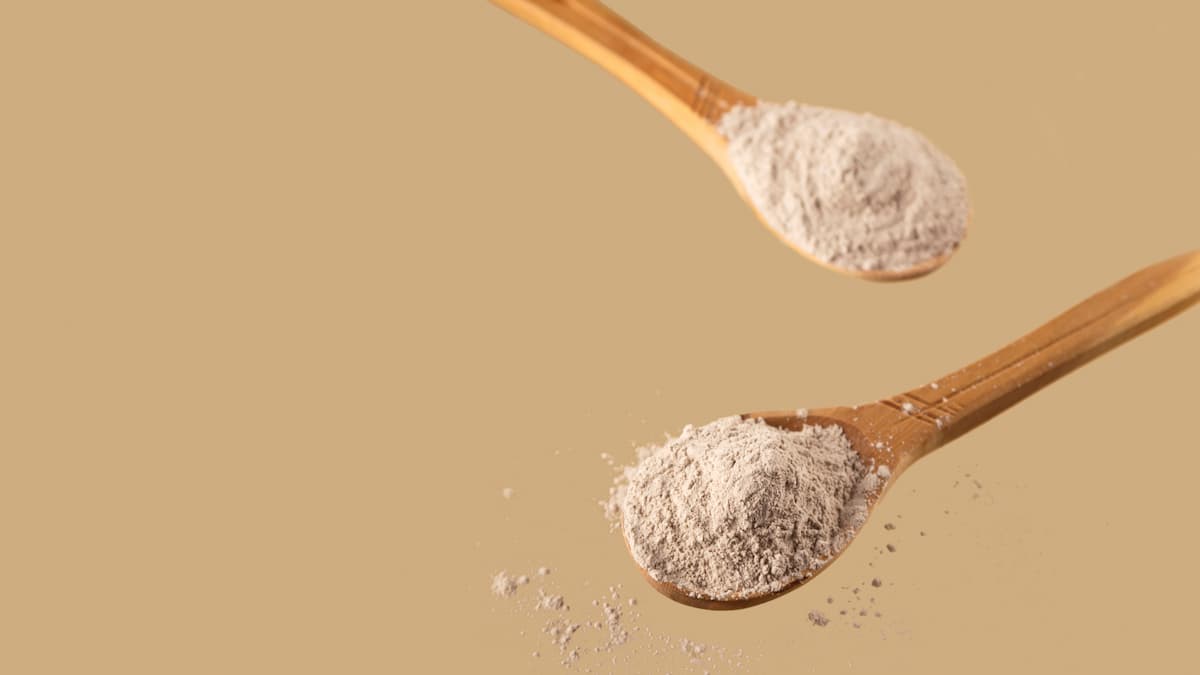
Everything you want to know about COLLinstant collagen.

Collibre collagen is an interesting supplement in shot form.
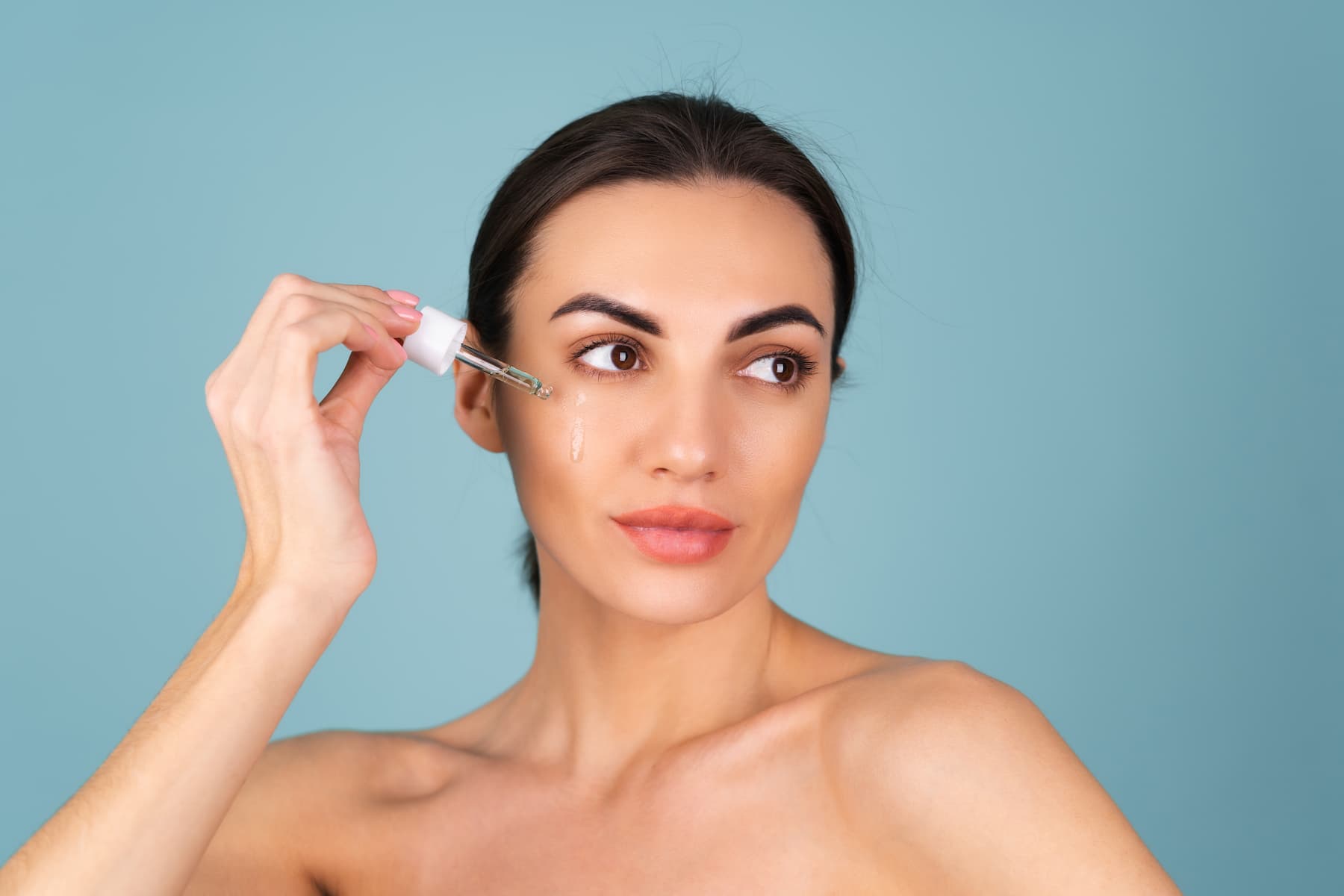
Solgar collagen with hyaluronic acid is a dietary supplement that supports skin and joint health.
